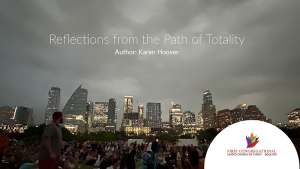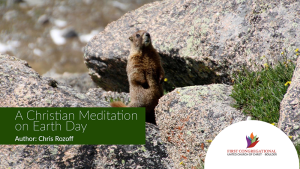Author: Bob von Trebra
Luke 18:18-27
A certain ruler asked [Jesus], “Good Teacher, what must I do to inherit eternal life?” Jesus said to him, “Why do you call me good? No one is good but God alone. You know the commandments: ‘You shall not commit adultery; You shall not murder; You shall not steal; You shall not bear false witness; Honor your father and mother.’” He replied, “I have kept all these since my youth.” When Jesus heard this, he said to him, “There is still one thing lacking. Sell all that you own and distribute the money to the poor, and you will have treasure in heaven; then come, follow me.” But when he heard this, he became sad; for he was very rich. Jesus looked at him and said, “How hard it is for those who have wealth to enter the kingdom of God! Indeed, it is easier for a camel to go through the eye of a needle than for someone who is rich to enter the kingdom of God.”
Those who heard it said, “Then who can be saved?” He replied, “What is impossible for mortals is possible for God.”
A quote that has been attributed to Mark Twain says something like, “Some people are troubled by the things in the Bible they can’t understand. The things that trouble me are the things I can understand.” This passage from Luke is one of those troubling passages in the Bible that seems pretty clear to understand, but not easy for me to follow. And that troubles me. I can usually dismiss it as not relevant for me; certainly it was intended for people like Bill Gates or Elon Musk, not me. But the reality is that I, and many of the people I know, are probably within the top 1% wealthiest people in the world. I do give some of my money to worthy causes, but I have not come anywhere close to giving it all away in order to follow Jesus.
I have been participating in a book discussion group, offered by our Rocky Mountain Conference of the United Church of Christ, on the book, “The Conversation: How Seeking and Speaking the Truth About Racism can Radically Transform Individuals and Organizations,” by Robert Livingston. The book, and the discussion, have been eye-opening and difficult. I highly recommend it. I already knew some of it before, at least on an intellectual level. But the book has helped me to see more clearly how much I have benefited from the privilege of being White in the United States. All of my life I have usually “fit in” the places I have lived, and the groups of which I have been a part. One of the participants in our discussion group, who is Black, commented that she has rarely felt like she belonged in this country, or even in the church. That was hard to hear.
I think if Jesus were to show up here in Boulder County these days he would still say to me that I should give away all I own in order to follow him more closely. But I think he would also say that I should give away my privilege and comfort. I think that is what it will take to overcome and eradicate racism in our communities. I will have to let go of the belief, ingrained in me from childhood, that the way White people do things is proper and normal, and the way other people do them is somehow not. I will have to give up the comfort of lying low and keeping quiet when people say and do things that demean people who look different from me.
This is troubling. This is difficult – maybe even impossible — for a camel like me. But I pray that God will help. I will try to give up privilege and comfort for Lent, and, hopefully, beyond. If you don’t know what to give up during this season, I invite you to join me.



